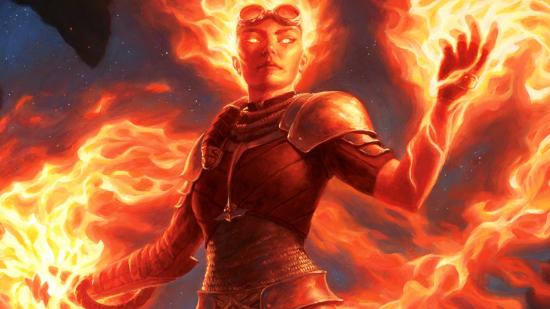If you’ve seen a keyword action crop up on one of your Magic the Gathering cards, you may be looking to understand it further. This is a guide to all the evergreen keyword actions in MTG – meaning keywords you’ll find in the core MTG set and that appear in most expansions.
Magic the Gathering is one of the best card games on PC, but it’s also one of the most difficult to learn due to its lengthy rules and mechanics, not to mention the fact that the physical game has received at least 50 expansions in its lifetime. Even seasoned MTG players need to sometimes check in on the rules, and if you’re hopping into Arena for the first time, it’s good to know the basics, as rounds can be over pretty quickly before you’ve had the time to process what’s happened.
This guide lists all the evergreen keyword actions in Magic the Gathering: Arena. You’ll find these actions on cards, so it’s good to know exactly what action you or your opponent will get to take. They are different from abilities, but if you need help with those then check out our MTG keyword abilities guide.
Here are all the MTG keyword abilities:
Activate
This is the action of using a card’s ability and paying the associated cost of that ability to resolve it.
Attach
Attaching a card to a creature – this can be either an artifact or enchantment. This is slightly different from equip, as it can be played at instant speed, which means it can be played when instant spells can. Instant spells can be played during the opponent’s turn, and not just the main phase like sorcery spells.
Cast
This is the act of casting a spell of any kind into play. All cards are spells, so it’s basically just playing a card.
Counter
This when you prevent a spell from resolving. So, if a spell is played, you can counter that spell to prevent it from casting.
Destroy
Destroying a card will remove it from play and put it into the owner’s graveyard. This will usually specify which type of spell to destroy, such as an enchantment, creature, or planeswalker.
Discard
Discarding a card is to remove it from your hand and place it into the graveyard. Discard can be found mostly on black coloured cards as an action. However, as the size of your hand can only have a maximum of seven cards, you’ll need to discard a card if your hand size exceeds this.
Exchange
The exchange action means exchanging usually a card with another card. However, exchanging can also apply to other elements, such as exchanging the life total of players.
Exile
Exile means that the card is removed from either the battlefield, the hand, the library, or graveyard to a permanently exiled pile and cannot be brought back into the game, unless you have a card that specifies so.
Fight
Fight is an action where two creatures fight. It usually happens when a creature enters the battlefield, but can also appear as an extra cost ability. Fighting creatures still retain all their abilities and deal damage simultaneously. Fighting isn’t combat, so creatures will not tap once they’ve fought.
Reveal
Revealing is the action of showing a card from either your hand or library to the other player. A good example of this is the card Duress – Target opponent reveals their hand. You choose a noncreature, nonland card from it. That player discards that card.
Sacrifice
Only permanent cards can be sacrificed and only cards a player controls. Sacrificing a card means moving it from the battlefield into the graveyard.
Scry
A scry action is to look at a specified number of cards on top of your library and put them back into your library, but on either the top or bottom in any order. So, if you see a card that you want to draw next, or don’t need, then you can influence this order.
Search
To search is an action that allows you to search a specified zone (graveyard or library) and find a card. This could be used to find a spell you need, or even to find a planeswalker, such as the card Oko’s Hospitality which has the action to ‘search your library and/or graveyard for a card named Oko, The Trickster’, a legendary planeswalker.
Shuffle
Shuffle is pretty self explanatory and requires you to shuffle (rearrange) the cards in a specified area, this could be your library or graveyard.
Tap and Untap
Tapping and untapping is a massive part of how to play MTG, you can read in detail about this action in our how to play Magic the Gathering: Arena guide.
There’s a great list of the comprehensive rules in MTG, it’s handy to keep the guides and rules close by if you’re trying to familiarise yourself with the mechanics. Magic the Gathering: Arena is also completely free, and is on our list of the best free games on PC.
